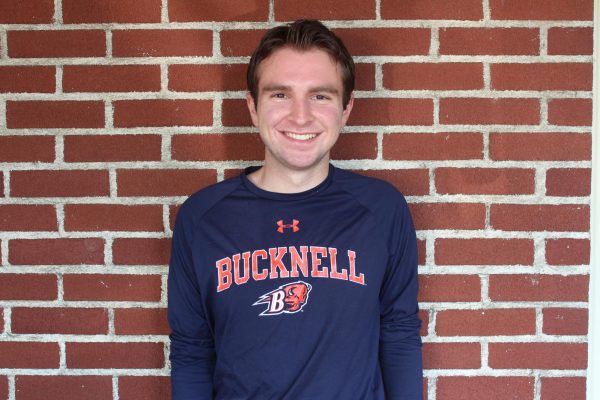For nearly 40 years, Bucknell University’s most prestigious academic award and merit scholarship has been the Presidential Fellowship. Awarded to a handful of “high-achieving, intellectually curious students” (taken from the bucknell.edu Presidential Fellowship webpage) in the incoming class each year, the program offers recipients a financial scholarship as well as built-in opportunities to expand research and intersectional team-building experience. Students working as Fellows are not limited to their college or major of choice when pursuing research—on the contrary, these individuals are encouraged to try out a new interest, completely unrelated to their other scholarly work.
Towards the end of this past summer, the Presidential Fellowship program was abruptly eliminated from Bucknell’s scholarship program repertoire, leaving current Fellows and many faculty members shocked and disappointed.
Existing Fellows’ initial reactions to the news have been varied, but all reflect a deep love for the program and the opportunities within it. Allison Varra ’27 has felt so encouraged by the interdisciplinary connections she’s been able to form. “We [as Fellows] have been prompted to explore disciplines that we might not be familiar with. Nowhere else have I seen so many engineering students excited about classics, or biology students able to pursue projects related to calligraphy.” By discontinuing a program “focused on the beauty of learning across scholarly subjects,” Varra is worried Bucknell will begin to lose that approach. “In a room of ‘PFellows,’ if you ask: ‘Who would be here without this scholarship?’ no one raises their hand.”
Skyler Le ’27 shares similar concerns. “When I got the news, I was stunned, confused and rattled: the very reason I joined Bucknell had been uprooted,” he recalls, thinking back on the experience of receiving a jarring email with very little detail from an equally bewildered faculty member. “Which parts of the [Presidential Fellows] program had been found deficient? The parts that I liked, or the parts that I loved?”
Le is one of several mentors who dedicates additional weekly time to guiding the new first-year group of Fellows. “It’s bittersweet to see them each week for our common hour and be reminded that they’re the last PFellow first-years, ever. No one will follow in their footsteps, and they won’t have the opportunity to mentor younger Fellows, which is a valued experience for a lot of upperclassmen in this program.”
Lauren Godfrey ’27, too, would not have chosen Bucknell without the Fellowship opportunity. “[The program] gave me an instant community, which Bucknell consistently preaches about, as well as motivation to keep my grades high.” Echoing the community-based sentiments expressed by most Fellows, Godfrey continues, “The Fellows have also exposed me to different people from each college that I wouldn’t have met without the program. As the highest academic merit scholarship, this gave applicants something to strive for. I know many applicants who were only applying because of the PFellow program, and are now reconsidering their applications to Bucknell entirely.” In fact, 96.4 percent of Fellows reported in an internal survey that the research opportunities attached to their Fellowship offers were a deciding factor in their choice to attend Bucknell.
Alice Jackins’ ’25 primary anxiety about the program’s dissolution lies with future, real-world credibility concerns. “As it stands, Bucknell’s advertisement and representation of the Presidential Fellowship opportunity online and to incoming applicants is nonobvious, to say the least. This decision does us current students a disservice by diminishing the award we earned, and making it difficult to support our assertions of our accomplishments when applying for jobs or citing experience in the workplace.”
Vice President for Student Enrollment, Engagement and Success Lisa Keegan and the Deans of each college are giving a group of Fellows the chance to “share [their] passion for the program” in a forum Jackins herself is “honored” to be facilitating.
Faculty’s concerns are not going unheard, either. Roger Rothman, Samuel H. Kress Professor of Art History, is part of a group of faculty who have concerns. He speaks for himself, as a mentor of several Fellows, when he says, “Though it may turn out that the replacement programs are as effective as the PFellow Program, I am disappointed that a decision which impacts faculty was made without faculty input.”























Rt • Sep 14, 2024 at 10:39 am
Deeply discouraging to have heard about this a couple of weeks ago and by press time of this article it appears little new information has been given to students or faculty….